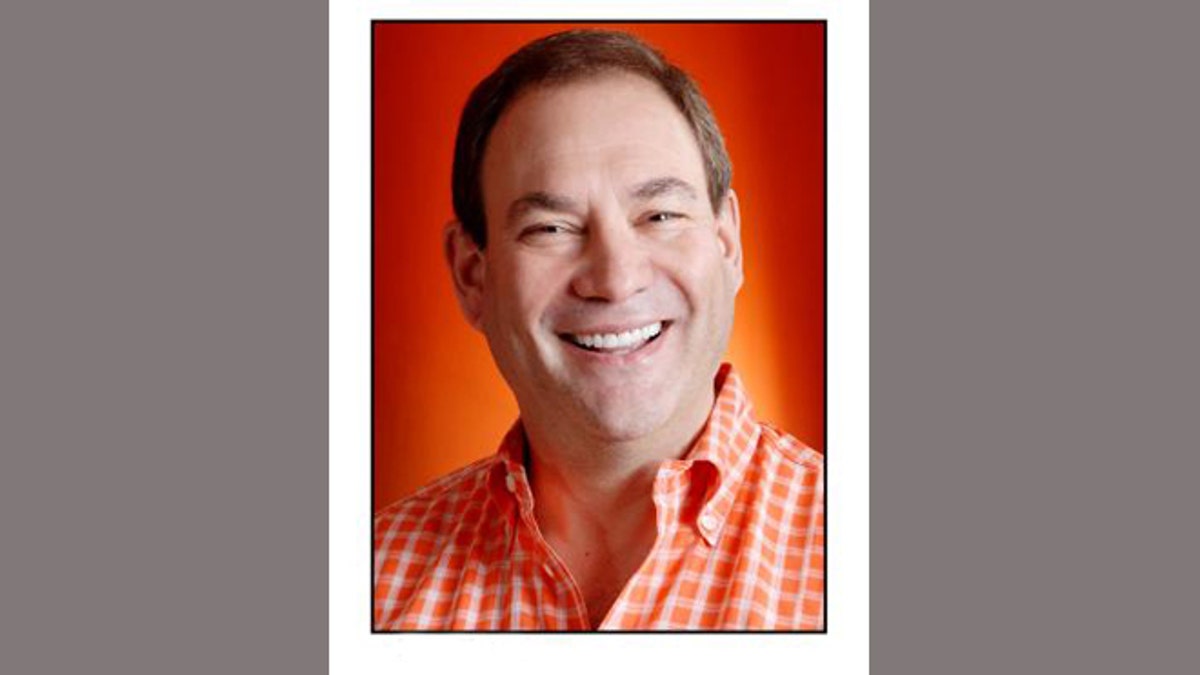
Rob Taub (Courtesy of the author)
Unless they’ve won the lottery or inherited a great deal of money, no one wakes up one day and suddenly cries out: “I’m rich!” Creating and developing wealth is a process that takes time. The same thing holds true for diabetes. If you’re not born with it, diabetes is a disease that some people develop over a period of time, as was the case for me.
According to the American Diabetes Association, 25.8 million children and adults in the United States – 8.3 percent of the population – have diabetes, and this is expected to double in 10 years. There are three pages of basic diabetes statistics, and they are frightening. This is a disease growing at epidemic proportions, yet most people don’t understand diabetes and how it affects us.
In the spring of 2009, I was diagnosed with type 2 diabetes. I was 53 years old, weighed in excess of 250 pounds (my normal weight had always been 188 pounds). I felt miserable. I suffered from constant fatigue and was always irritable. I experienced continual hunger, thirst and had to urinate constantly. Worst of all, I lost my sex drive.
This didn't happen overnight. Despite what I thought was a healthy diet, I had been consuming far too many carbohydrates, especially for breakfast. Americans in particular eat desserts for breakfast. Croissants, sticky buns, buttered bagels and cereals loaded with sugar and processed carbohydrates are breakfast staples for most Americans.
Most people wrongly assume diabetes is about consuming sugar in the form of candy and sweets, but for many people (especially me) simple carbohydrates are the real enemy. Refined carbohydrates like white bread, rice and pasta are immediately converted to sugar and wreak havoc on the human body.
My breakfast (at 7 a.m.) consisted of shredded wheat (pure carbs) with a banana and a bagel (more carbs). By 10:30 a.m., I was always ravenously hungry and would eat some sort of fruit to hold me over until lunch. My lunch usually consisted of pasta primavera, which – because of the vegetables – I mistakenly presumed to be healthy. At age 49, despite regular exercise (running and weights), I began gaining 12 – 15 pounds a year and at age 53 found myself obese, miserable and a type 2 diabetic.
I went for a physical and discovered that my fasting blood sugar level was unacceptably high and my doctor prescribed Metformin, which helps manage insulin levels. He recommended I see an endocrinologist, who immediately informed me that I was a type 2 diabetic.
Type 2 is the most common form of diabetes, and according to the U.S. National Library of Medicine, “When you have Type 2 diabetes, your fat, liver, and muscle cells do not respond correctly to insulin. This is called insulin resistance. As a result, blood sugar does not get into these cells to be stored for energy. When sugar cannot enter cells, high levels of sugar build up in the blood. This is called hyperglycemia.” If left unchecked, it will eventually damage nerves, blood vessels and lead to stroke and heart disease.
With the help of the Internet, I began doing research and found Duke University’s Diet & Fitness Center, which had a one week program specializing in diabetes. Duke’s basic concept is that diets don’t work and you must adjust and (permanently) maintain a new lifestyle. Most diets treat people as abstractions, whether it involves 10 or 10,000 people. Duke considers the individual and after consulting with a doctor and a nutritionist, a diet is devised for that specific person. My week at Duke was a huge success, resulting in a loss of eight pounds.
The Duke diet is always based on a well-rounded healthy approach to eating. The biggest change for me was to eliminate the refined carbohydrates in my diet. Refined carbohydrates were replaced with whole grains. White rice, pasta, potatoes, bagels and most breads were out. I started combining two whole grain sugarless cereals – Uncle Sam’s & Ezekiel—along with a hard-boiled egg for breakfast, which usually kept me sated until noon. Lunch now consists of a healthy salad topped with tuna, chicken or salmon. If I have a sandwich, it's always on multi-grain bread with unprocessed fresh meat or fish.
The most significant lesson I learned at Duke is the importance of due diligence. People will research a stock they want to buy or a vacation they want to take, but they know very little about their own bodies. I now follow a healthier diet, but in no way do I consider it restrictive.
My doctors say my current health is excellent. As soon as I eliminated all of the bad carbs and balanced my diet, my body responded very quickly. The constant thirst and urination disappeared in a week. My sex drive came back and then some. All my numbers (triglycerides and cholesterol) are lower than they were 20 years ago.
As long as I maintain my weight and exercise regularly, I no longer need to test my blood on a daily basis, although I do so occasionally. As for hard boiled eggs, I eat two a day and have seen no rise in my cholesterol as a result. The lowest my weight has been in the past two years is 186 pounds. It is currently 193 pounds, but my goal weight is 183 pounds, which will reduce my belly fat and help my pancreas deliver insulin more effectively.
My doctors believe as long as I continue the proper combination of diet and exercise I will not encounter the negative effects of diabetes, so I consider that a victory. As far as I’m concerned – I’ve beaten diabetes.
